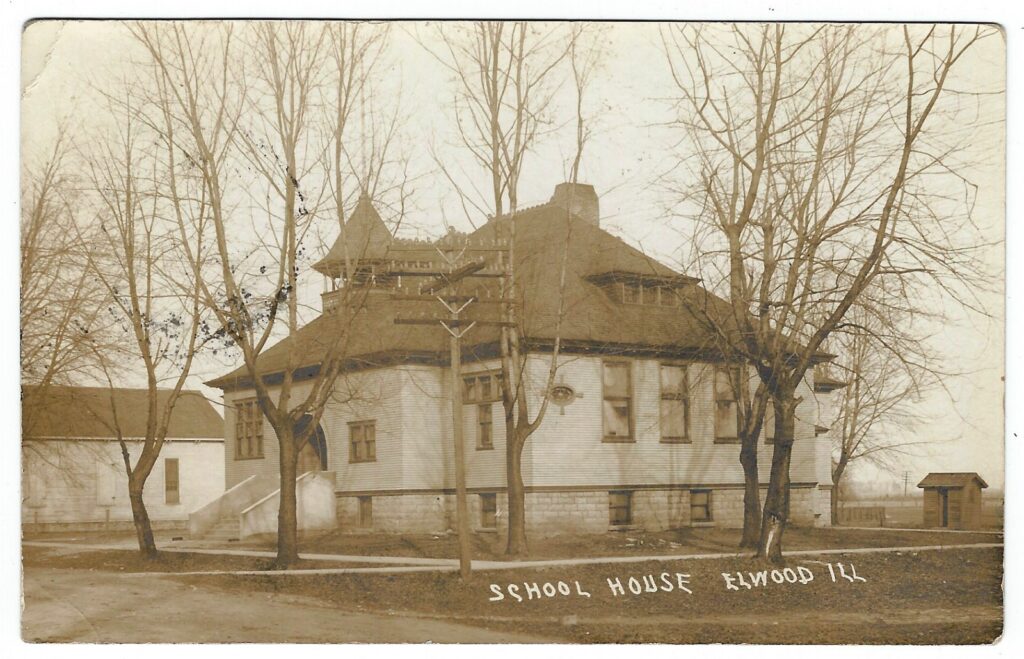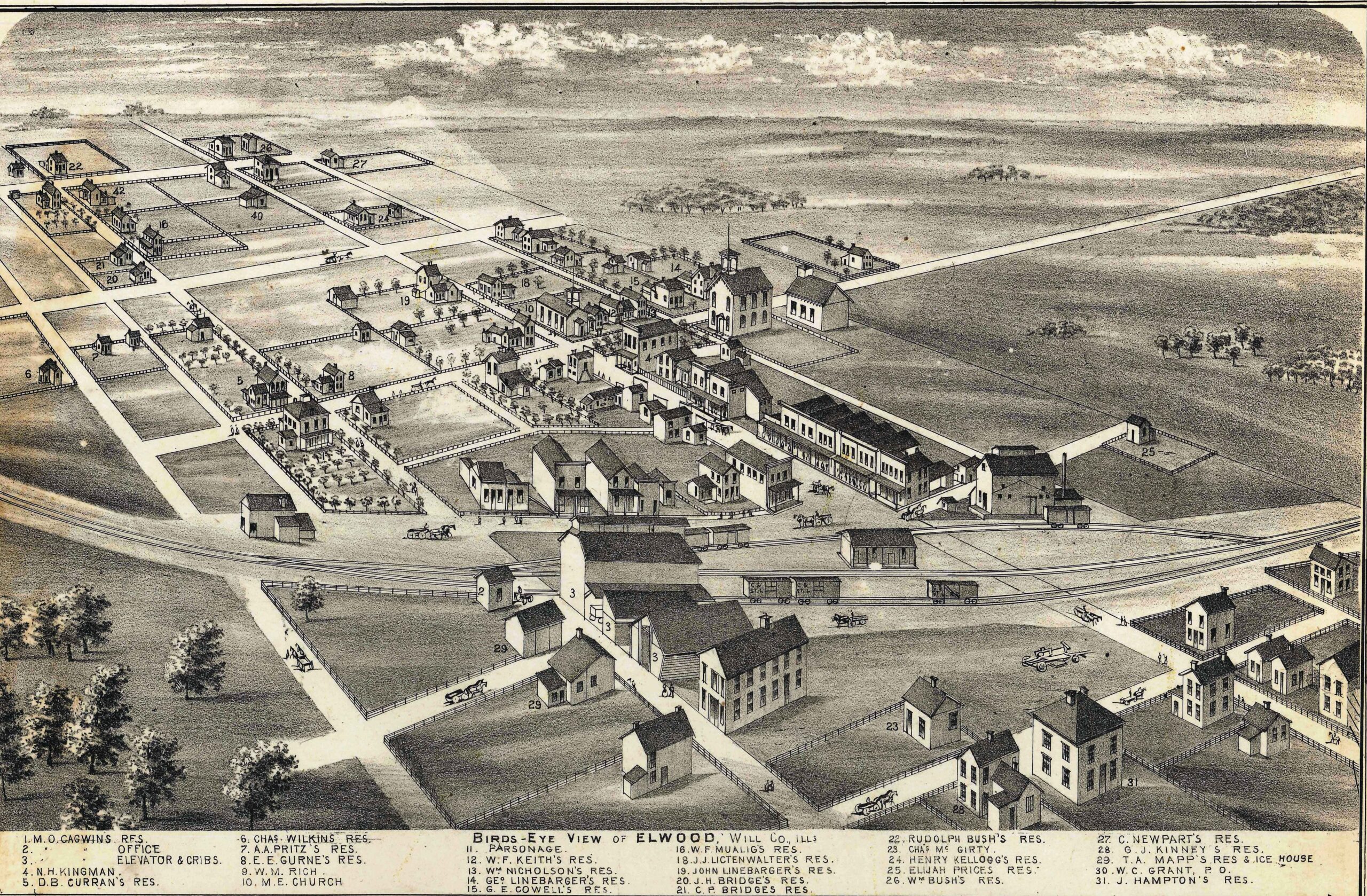Quirky bits from Jackson Township

By Sandy Vasko
There are times in my research that I come across a bit that probably will never work up into a story, but makes me smile or stop and think. Today, we look at the quirky bits from Jackson Township.
Early on, Jackson Township residents were conservatives, both in politics and financial affairs. In fact, most of the township thought slavery was fine and good, and that abolitionists were violating the law, and should be charged and arrested. William Linebarger was an outspoken proponent of that point of view, and he himself was considered a bit quirky.
We read of his antics at a Fourth of July celebration in the Joliet Signal from August 4, 1857: “The Wilmington Herald, speaking of the fourth of July celebration at Jackson says: ‘Mr. Linebarger led off with a ‘purely national’ Border ruffian harangue, much to the disgust of a great majority of those present.” Linebarger continued speaking like that until Lincoln was assassinated.
The main town in Jackson Township is and was Elwood. We find it described in the July 10, 1866 Joliet Signal: “Elwood – This flourishing little town is situated on the Chicago & Alton railroad, ten miles from Joliet, and promises to be a place of considerable business importance. It is surrounded by a rich farming community and is the center of a large produce trade. Several buildings have been erected there this season, one of which is a magnificent public school edifice and another, a splendid and beautiful Church, the latter by the Methodist Church, which is composed of wealthy and intelligent farmers. These two buildings are an ornament to the village, and were constructed by that proficient and skillful workman Henry Jull, who resides a little east of this city.”
While it was a sleepy town, sometimes postponing sleep was a good idea. From February 19, 1867: “Caught in a trap – A few nights ago a farmer in Jackson missing corn from his crib, set a strong steel trap in such a position that the transgressor in reaching for his booty would be likely to get ‘a hand into it.’ And sure enough he did. Going to his crib at a late hour, the farmer found one of his neighbors fast in the trap. After a severe reprimand, and a promise on the part of the erring individual to reform and steal no more, he released him and let him depart, minus the anticipated corn, but with an aching hand.”
The residents did not seem to always come eye to eye on problems. This next quirky bit comes from a description of a meeting to organize Fourth of July celebrations. Note that Elwood prided itself as alcohol free, while the rest of the Township was proud of exactly the opposite.
From June 10, 1871: “Our Elwood neighbors, it appears contemplate celebrating the glorious ‘Fourth.’ With that view a meeting was recently held and resolutions adopted to have a ‘temperance Sunday-school celebration.’ Upon subsequent deliberation the word ‘temperance’ was struck out, as superfluous, Elwood as matter of course, being well known to be one of the most temperate towns in the northwest.
“After another sober second thought and considering the existence of more than one Sunday school, the words ‘Sunday school’ was tabled by a vote of about 40 to 41. In short, the house was divided against itself, and each faction proceeded to perfect arrangements. However, peace was declared, and in all probability our neighbors will unite in favor of a good old-fashioned celebration, unalloyed by sectarian, political, or other side issues. We hope our friends of Elwood will join hands as they ought, and go in for a general good time – and we’ll do their printing.”
Temperance kept some people from visiting Elwood. One writer cautions, “I should judge, from what I see of this place, that the morals are good. They are pretty tight on the temperance matters. If you should visit this place, Messrs. Editors, you would have to carry your Old Rye with you, if you use the article, although I learn if a person has a lame back, he can get a ‘nip’ at the drug store. It is my opinion that temperance can be run into the ground, and I should not wonder if it is the case here. Moral suasion will do more than stringent and severe laws.”
Our next two bits tell us that perhaps things were a little dull in Elwood. From May 10, 1873, “Elwood can turn out more men, women, children and babies, to see a passenger train arrive than any other town of the same size in the state.”
From June 14, 1873, “An individual living near Elwood, called on our Fire Marshal last week to ascertain if Wilmington was going to celebrate the Fourth of July. He was very anxious to find out, because, as he explained, ‘if you are going to sling powder and have a whooping old Fourth of July, I want to get a red woolen shirt and a new pair of boots, and come in with Sarah.’”
In 1873, the Joliet Republican had a correspondent from Elwood writing a weekly column. He was soon fired because of his quirky style of writing. An example: “A lulus natural (heavy wind) played down the east gable end of Mr. E. Gifford’s residence during the storm of Wednesday evening. The building itself was damaged in a general small way, and many articles of household furniture and embellishment therein, but fortunately no persons showed the effects of the mysterious sport. Most of the family being absent from home, no one happily was in that part of the house. Several persons on the street were startled by the clap and remarked the cloud of smoke emitted from the chimney.”
Our last two bits perhaps speaks to the quantity or quality of men in Jackson Township. From February 11, 1876, “Elwood is a bad place for tramps. An old maid of that place recently married one who applied for aid.”
And some advice from the Elwood Correspondent of the Joliet Signal: “Procrastination is the ‘ragged edge of despair.’ Always let your wife have her own way. It saves lots of money which otherwise you would have to spend for hair restorers.”

A bird’s eye view of the town of Elwood. Note the lack if natural trees in the area. The most of the trees pictured were obviously planted. It was truly a prairie town.